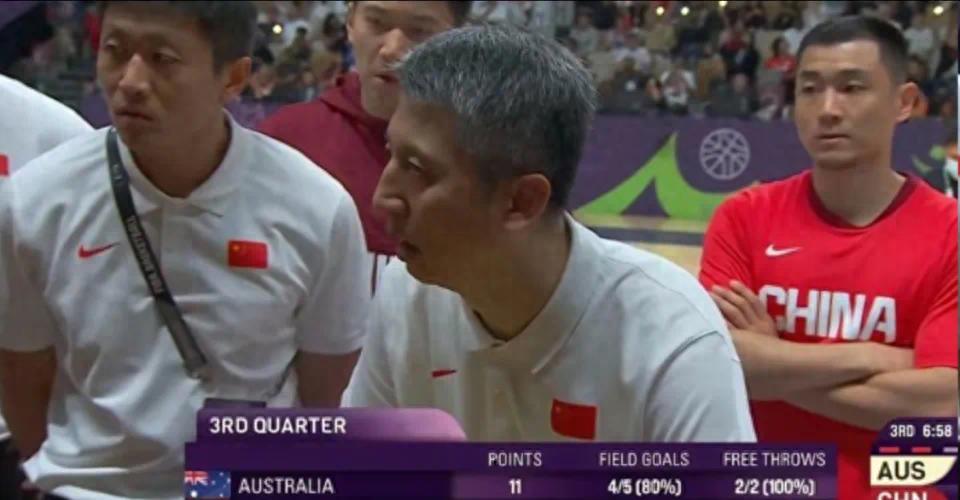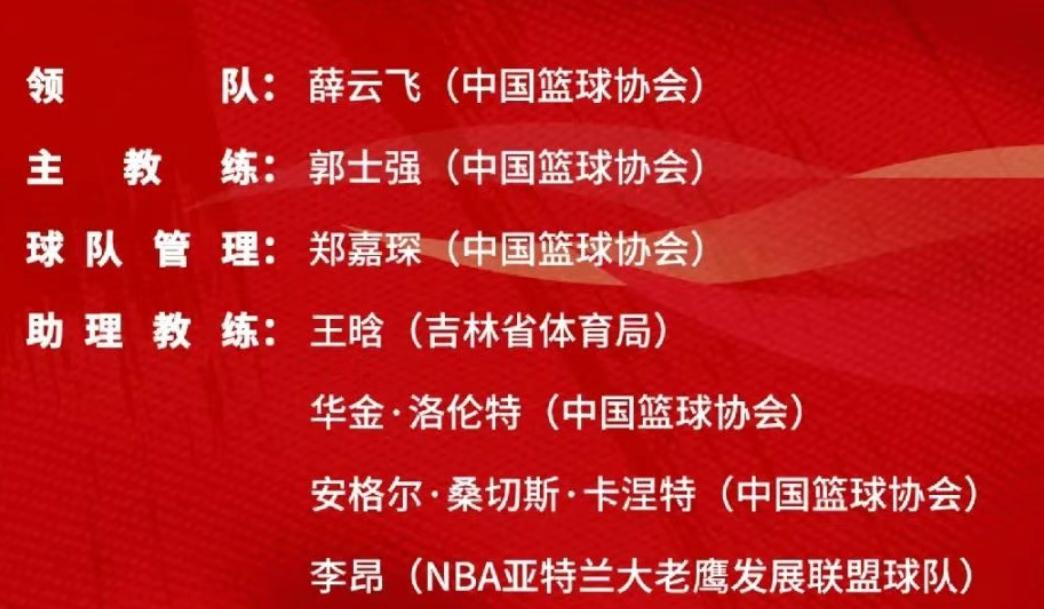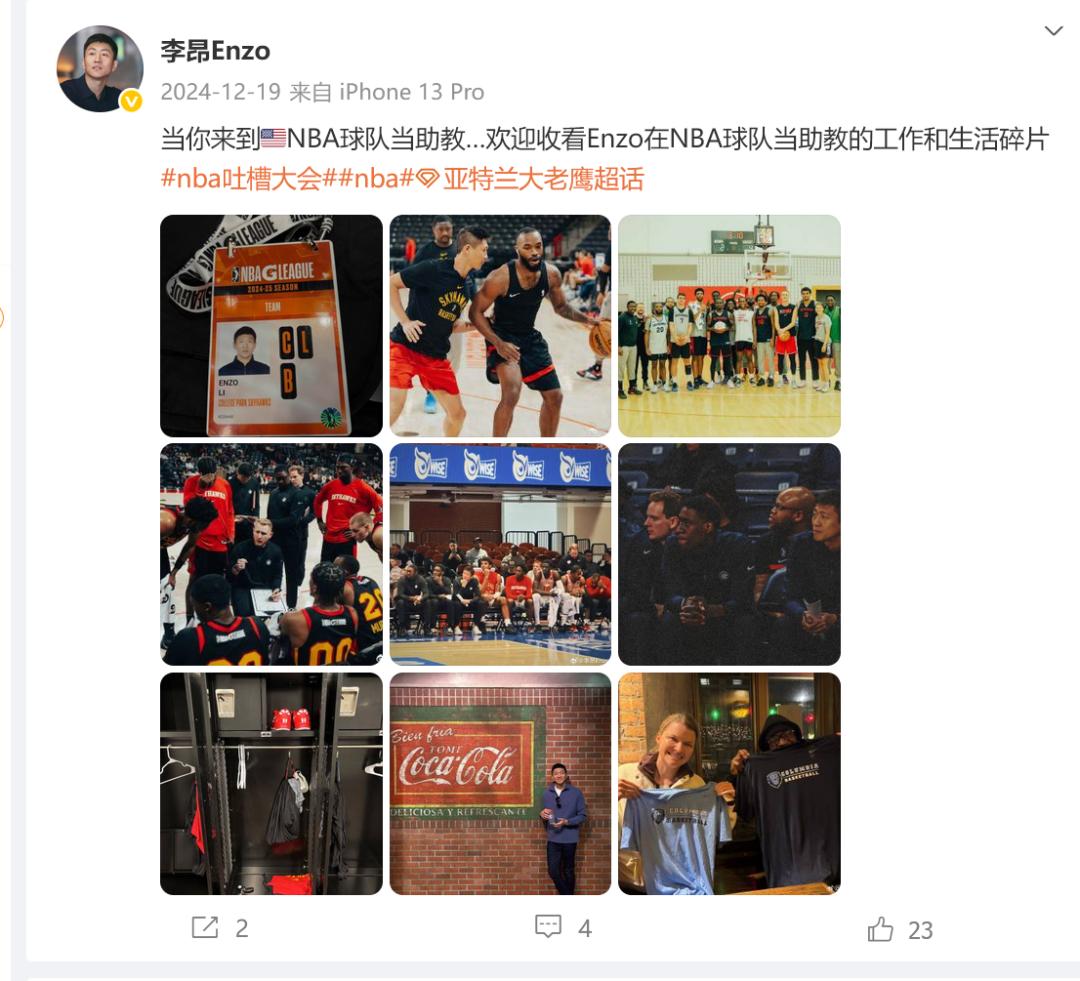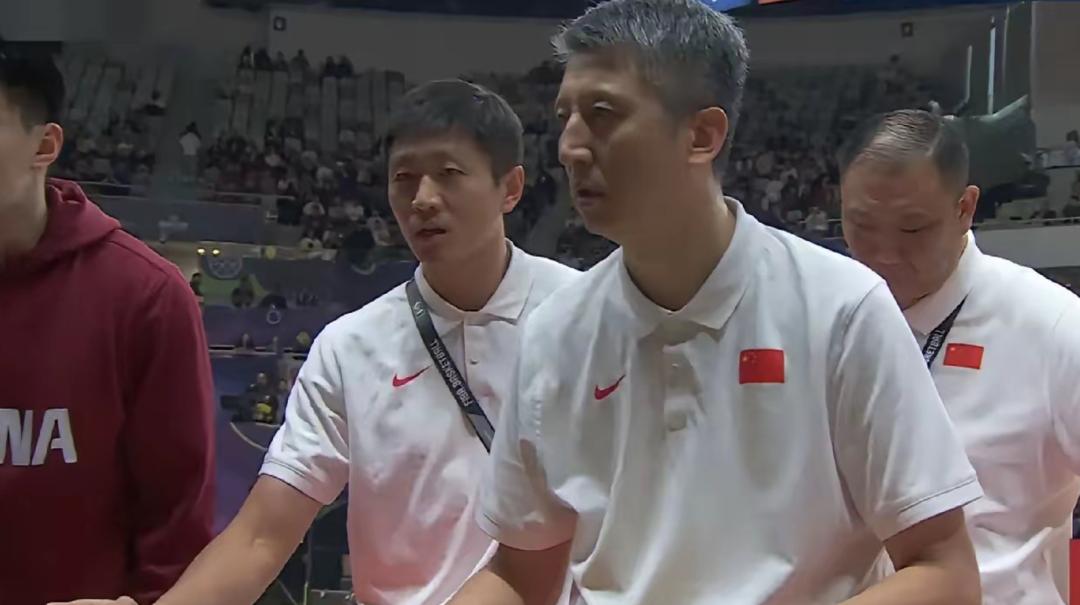There is a Chinese coach who is also striving to enter the NBA! This is a different path!
This is a continuation of yesterday’s discussion.
People often say that domestic players lack ambition and competition.
Many times, people don’t think about whether their “teachers” are ambitious? Are their coaches constantly updating their coaching plans?
Do they watch the recently finished Africa Cup? Do they know Angola took the title? Will they watch the upcoming, more competitive EuroBasket?
Whether youth coaches or professional team coaches, conceptually they are far behind the world. Coaches don’t understand mainstream global playing styles, so how can you expect players to grasp international competitions?
Basketball tactics evolve very quickly, like new energy vehicles. If the domestic scene doesn’t keep up, it will only fall behind.
Therefore, what Yao Ming emphasized before is something I fully agree with as a fan: “A coach’s understanding determines the level of the next generation of athletes.”
“When will our coaches be able to go out? To travel around other clubs and regions?”
Our situation? There are two main phenomena.
First, when a coach is dismissed from a team, he easily finds a job with another team. It’s always the same few coaches going back and forth.
Not worrying about employment leads to no motivation to study hard.
Second, players directly become coaches.
Zhou Peng, already the national team captain, is still struggling while coaching Shenzhen...
Because coaching and playing are two different things.

Coaches need to open their eyes and look at the world.
This Chinese men’s basketball team has a “special” assistant coach named Li Ang.
What makes him special?
He took a path no one has taken before and is truly a pioneer in Chinese basketball history.
Look at Coach Li’s background:
1. As a student, he was admitted to Tsinghua University’s mathematics department through math competitions and represented Tsinghua’s men’s basketball team in the CUBA Sunshine League.
2. After giving up a finance job in Paris, he went to the U.S. for a master’s in sports management. He volunteered to join Columbia University’s basketball team, started from the bottom, and was promoted to assistant coach the next year, systematically learning American basketball tactics and systems.
3. In 2018, he returned to China to join Beijing Shougang Club, initially responsible for the “Young Eagle Program” youth training, then promoted to assistant coach for the CBA first team.
4. In 2024, he signed with the College Park Skyhawks, an affiliate of the NBA’s Atlanta Hawks, becoming the first Chinese coach in the NBA Development League, responsible for player personal training, scouting reports, and defensive strategy design.
Li Ang, like young Chinese players, has dreams of the NBA.
He didn’t come from a sports school and never played professionally; he is a top student whose passion for basketball is a major factor in his career.
Such a background entering the Chinese men’s basketball coaching staff is unprecedented, right?
We used to have domestically sponsored coaches sent abroad, but Li Ang’s journey is self-initiated, fueled by passion, and his stay abroad was longer and more in-depth.
As a young coach, he has a stronger ability to accept new things.

You’ll notice that here, professional players or coaches often have a natural arrogance.
They tend to look down on grassroots or so-called “amateurs”: “Did he play professionally?” “Why does he criticize us professionals?” “Did he ever play in the CBA?”...
Here I want to counter: Did Jack Ma study e-commerce? Can Jack Ma write code?
Li Ang lacks a professional playing background, but what does he have? Education.
A top student from Tsinghua’s math department, with a math background that enables big data analysis and optimizing functional player combinations through data analysis...
Which traditional coach here has that ability?
The older generation often can’t even use a computer, let alone understand English. This means they struggle to truly grasp foreign concepts.
Translations and firsthand understanding are very different.
Another point is that players themselves are changing.
Using old methods to teach post-2000s and later generations won’t work. Do old coaches understand psychology? Do they know Chinese family dynamics? Do they understand kids growing up in the internet era?
It’s definitely more than just teaching basketball...
If sports are seen as a form of education, then education’s importance to players includes cultural literacy, character building, value cultivation, cross-cultural understanding, mental resilience, and systems thinking.
A direct example: could you imagine a conflict between Xu Xin and Du Feng in the past?
Players born after 2000 are very different.
This poses new challenges for coaches on how to manage relationships with players.

Being a great player doesn’t mean being a great coach.
Today’s NBA coaching system values tactical understanding, data analysis, player development, and team management skills more than just playing experience.
Video editing, scouting reports, tactical design, communication, and leadership skills have become essential competencies for modern coaches.
Spoelstra also started from video editing, didn’t he...
Li Ang’s path reflects a new model of “non-player background + professional education + international experience,” closely aligned with recent NBA trends.
As outsiders, we don’t know how much Li Ang contributed to this Chinese men’s basketball coaching staff or what his main responsibilities are.
However, the changes in China’s basketball style, especially the offensive tempo, show some new features.
Perhaps Coach Li deserves much credit.
Hopefully, his journey abroad is not just an individual struggle but also a significant sign of Chinese basketball embracing scientific and international approaches.
When more people take this path, it becomes a road.



Wonderfulshortvideo
User GameGladiator has posted a video.








 Links
Links
 Contact
Contact
 App
App


